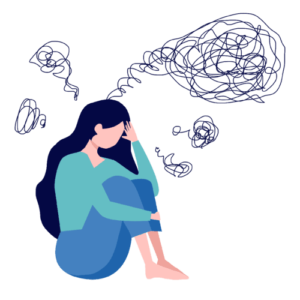
Mania Test
Answer these simple questions to understand more about your Mania. We share instant results and keep your information confidential.

What is Mania Test?
Mania assessment is a psychological evaluation used to diagnose and measure the severity of mania, a symptom of bipolar disorder. It involves assessing a person’s emotional state, behavior, and thought patterns to determine if they are experiencing manic episodes. Common assessment tools include interviews, questionnaires, and rating scales that help identify manic symptoms like elevated mood, impulsivity, increased energy, and decreased need for sleep. Accurate diagnosis is essential for developing appropriate treatment plans and providing support to individuals experiencing manic episodes.
Who can benefit from this Mania Test?
Anyone suspected of experiencing manic symptoms can benefit from a mania assessment. This includes individuals who display erratic behavior, extreme mood swings, and heightened energy levels. People with a history of bipolar disorder or those who have a family history of the condition may also benefit from this assessment. Prompt evaluation can lead to an accurate diagnosis and appropriate treatment, helping individuals manage their symptoms effectively and improve their overall quality of life. Early intervention and support can prevent the escalation of manic episodes and promote better mental health outcomes.


Mania Test Accuracy
The accuracy of mania assessment relies on the proficiency of the evaluating healthcare professionals and the tools used. When conducted by trained clinicians using validated assessment instruments, the accuracy is generally high. However, due to the complexity of manic symptoms and potential overlap with other conditions, misdiagnoses can occur. Additionally, individuals may not always disclose all symptoms accurately. Continuous research and improvements in assessment methods are essential for enhancing accuracy and ensuring individuals receive the most appropriate diagnosis and treatment for their specific mental health needs.
Types of Mania Test
Young Mania Rating Scale (YMRS):
A 60-item scale assessing mood, thought content, and behavior severity during manic episodes.
Bipolar Spectrum Diagnostic Scale (BSDS):
A 19-item self-report tool to screen for bipolar disorder and assess its severity.
Mood Disorder Questionnaire (MDQ):
A 13-item questionnaire to screen for bipolar disorder by evaluating manic and depressive symptoms.
Hamilton Rating Scale for Depression (HAM-D):
Assesses depressive symptoms, aiding in distinguishing depression from bipolar disorder with a manic component.
Clinician-Administered Rating Scale for Mania (CARS-M):
A 10-item scale focusing on the intensity and frequency of manic symptoms.
Mania Symptom Inventory (MSI):
A 26-item scale assessing a wide range of manic symptoms to aid in diagnosis and treatment planning.
Handling Mania Issues
Handling mania issues can be challenging, whether you’re dealing with it personally or supporting someone who is experiencing manic episodes. Mania is a symptom of bipolar disorder, and it’s essential to approach it with care and understanding. Here are some tips for managing mania issues:
- Seek Professional Help: If you or someone you know is experiencing mania, it’s crucial to reach out to a mental health professional, such as a psychiatrist or psychologist, who specializes in mood disorders. They can provide a proper diagnosis, create a treatment plan, and offer ongoing support.
- Medication: In many cases, medication is a crucial aspect of managing mania. Mood stabilizers, antipsychotics, and other medications may be prescribed to help stabilize moods and reduce the intensity of manic episodes.
- Therapy: Psychotherapy, such as cognitive-behavioral therapy (CBT) or dialectical behavior therapy (DBT), can be beneficial in managing manic symptoms. Therapy can help individuals understand their thought patterns, develop coping strategies, and build skills to manage mood fluctuations.
- Create a Support System: Having a supportive network of friends and family can make a significant difference in managing mania issues. Educate those close to you about the condition, so they understand the challenges you or your loved one might face and can offer appropriate support.
- Establish Routine: Maintaining a consistent daily routine can be helpful in managing mania. This includes regular sleep patterns, exercise, meals, and other daily activities.
- Avoid Triggers: Identify potential triggers that can exacerbate mania, such as excessive caffeine, alcohol, or stressful situations, and try to avoid or minimize exposure to them.
- Self-Care: Encourage or practice self-care activities, such as mindfulness exercises, relaxation techniques, hobbies, or activities that promote well-being and reduce stress.
- Safety Measures: During manic episodes, impulsivity and risky behavior can be more common. Take steps to ensure personal safety and remove access to potential dangers.
- Educate Yourself: Learn more about bipolar disorder and mania to better understand the condition and how to cope effectively.
- Communicate Openly: Encourage open communication with the person experiencing mania or with family members. Creating a safe space to talk about feelings and emotions can be valuable in managing the condition.
Remember, everyone’s experience with mania is unique, so the approach to managing it may differ from person to person. The most effective way to deal with mania issues is through a combination of professional help, support, and lifestyle adjustments. Always consult with a qualified mental health professional for personalized advice and treatment.